Detailed Description
Position sensor hardware layer, Using ADC and software comparator.
- Date
- Jan 27, 2020
Definition in file trigger_input_adc.cpp.
Functions | |
| void | toggleLed (int led, int mode) |
| void | setTriggerAdcMode (triggerAdcMode_t adcMode) |
| static void | shaft_callback (void *arg, efitick_t stamp) |
| static void | cam_callback (void *, efitick_t stamp) |
| void | triggerAdcCallback (triggerAdcSample_t value) |
| static void | printDumpBuf (void) |
| int | adcTriggerTurnOnInputPin (const char *msg, int index, bool isTriggerShaft) |
| void | adcTriggerTurnOffInputPin (brain_pin_e brainPin) |
| void | adcTriggerTurnOnInputPins () |
| adc_channel_e | getAdcChannelForTrigger (void) |
| void | addAdcChannelForTrigger (void) |
| void | onTriggerChanged (efitick_t stamp, bool isPrimary, bool isRising) |
| triggerAdcMode_t | getTriggerAdcMode (void) |
| float | getTriggerAdcThreshold (void) |
| int | getTriggerAdcModeCnt (void) |
Variables | |
| TriggerAdcDetector | trigAdcState |
| static const int | dumpBufNum = 100 |
| static triggerAdcSample_t | dumpBuf [dumpBufNum] |
| static int | dumpBufCnt = 0 |
| static ioportid_t | triggerInputPort |
| static ioportmask_t | triggerInputPin |
Function Documentation
◆ adcTriggerTurnOffInputPin()
| void adcTriggerTurnOffInputPin | ( | brain_pin_e | brainPin | ) |
Definition at line 143 of file trigger_input_adc.cpp.
Referenced by turnOffTriggerInputPin().
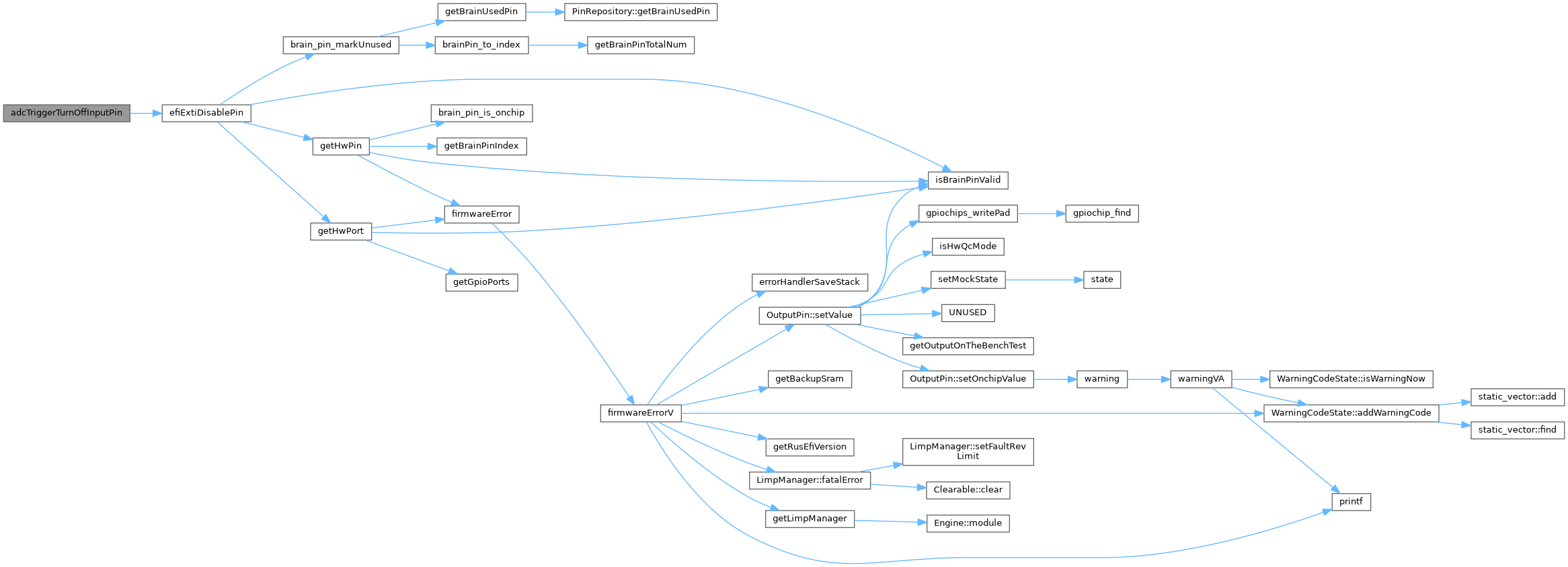
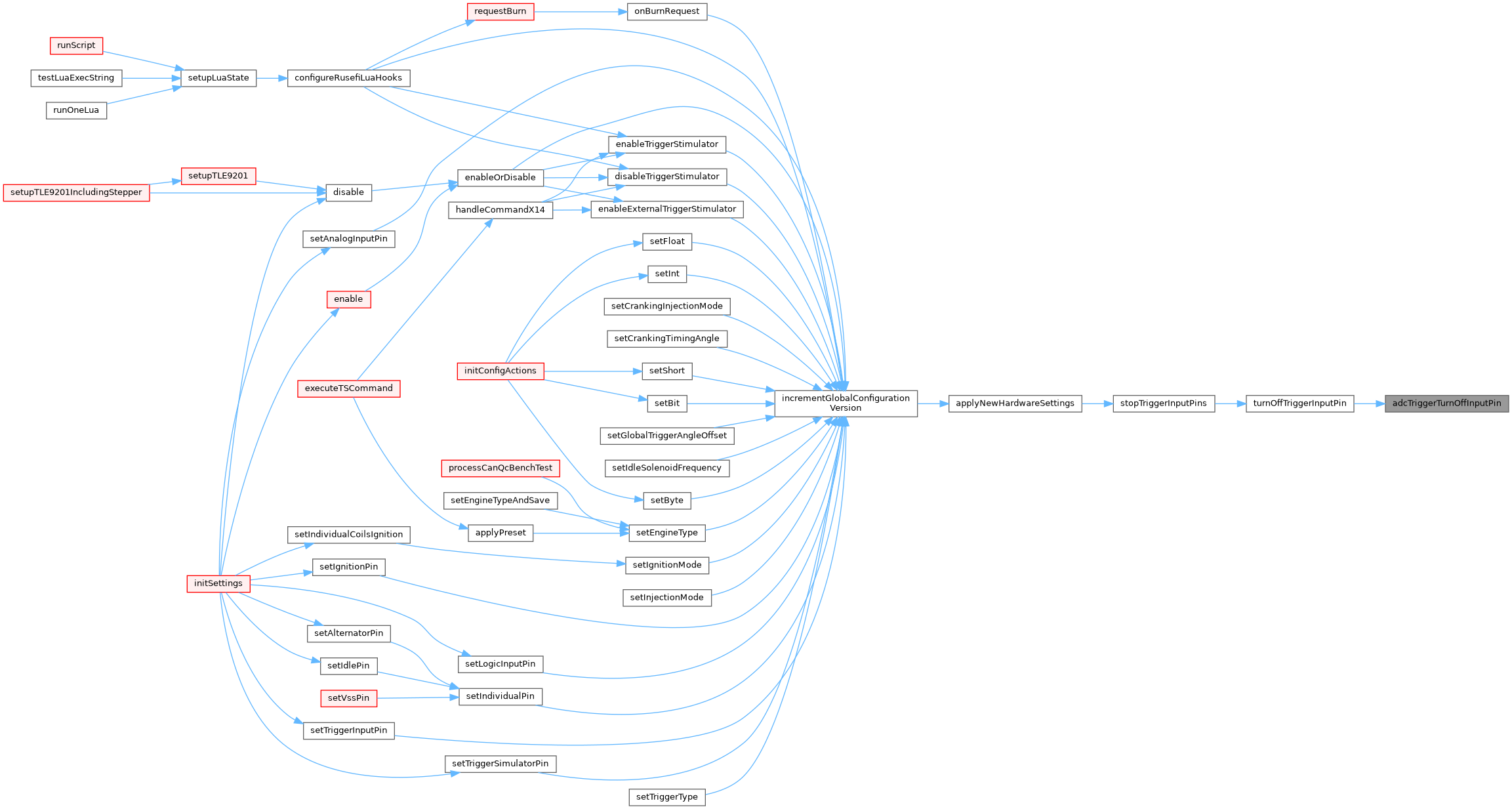
◆ adcTriggerTurnOnInputPin()
Definition at line 109 of file trigger_input_adc.cpp.
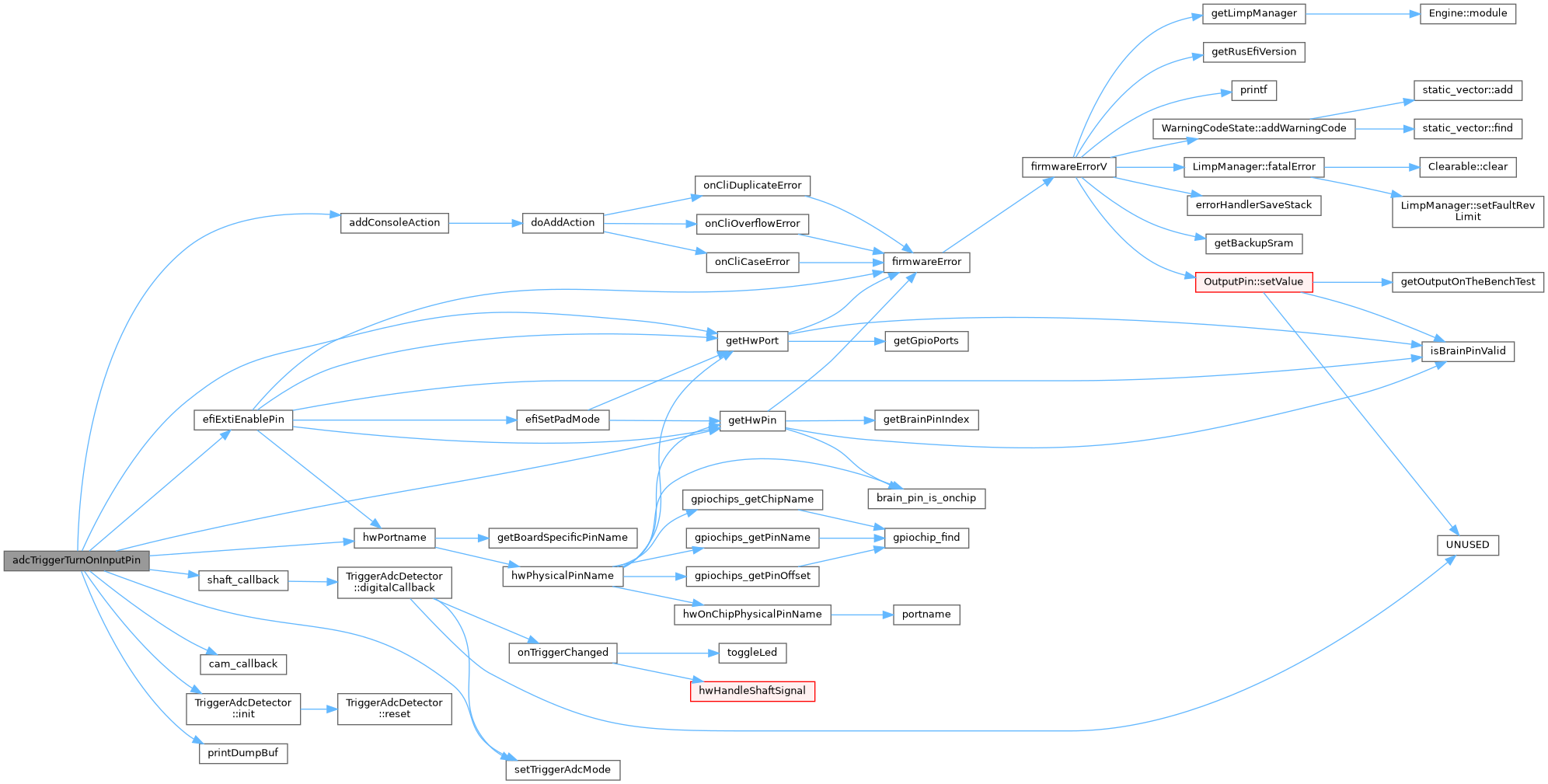
◆ adcTriggerTurnOnInputPins()
| void adcTriggerTurnOnInputPins | ( | ) |
Definition at line 147 of file trigger_input_adc.cpp.
◆ addAdcChannelForTrigger()
| void addAdcChannelForTrigger | ( | void | ) |
Definition at line 158 of file trigger_input_adc.cpp.
Referenced by setAdcChannelOverrides().


◆ cam_callback()
|
static |
Definition at line 88 of file trigger_input_adc.cpp.
Referenced by adcTriggerTurnOnInputPin().

◆ getAdcChannelForTrigger()
| adc_channel_e getAdcChannelForTrigger | ( | void | ) |
Definition at line 150 of file trigger_input_adc.cpp.
Referenced by addAdcChannelForTrigger(), and calcFastAdcIndexes().

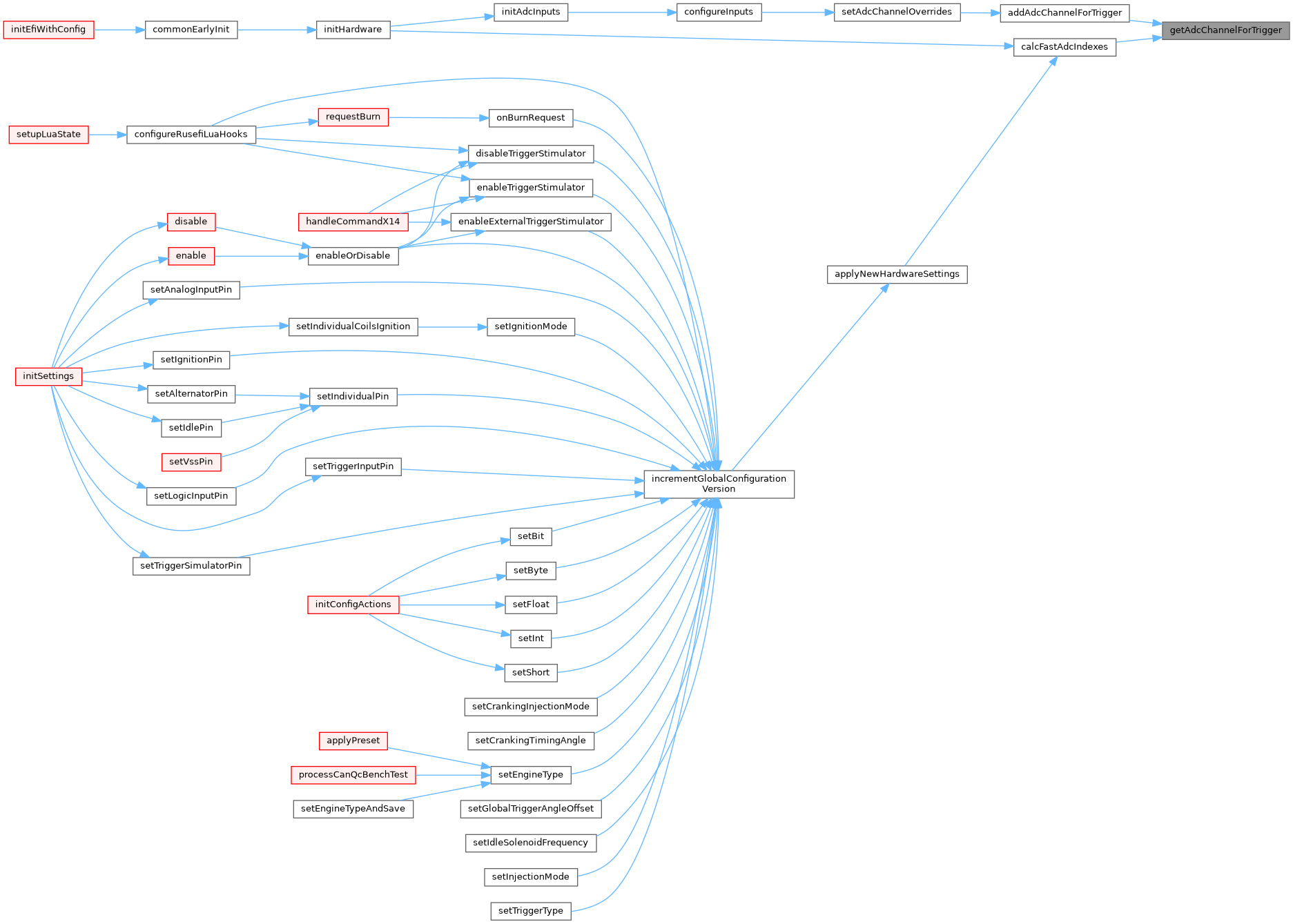
◆ getTriggerAdcMode()
| triggerAdcMode_t getTriggerAdcMode | ( | void | ) |
Definition at line 439 of file trigger_input_adc.cpp.
◆ getTriggerAdcModeCnt()
| int getTriggerAdcModeCnt | ( | void | ) |
Definition at line 447 of file trigger_input_adc.cpp.
◆ getTriggerAdcThreshold()
| float getTriggerAdcThreshold | ( | void | ) |
Definition at line 443 of file trigger_input_adc.cpp.
◆ onTriggerChanged()
Definition at line 165 of file trigger_input_adc.cpp.
Referenced by TriggerAdcDetector::analogCallback(), and TriggerAdcDetector::digitalCallback().
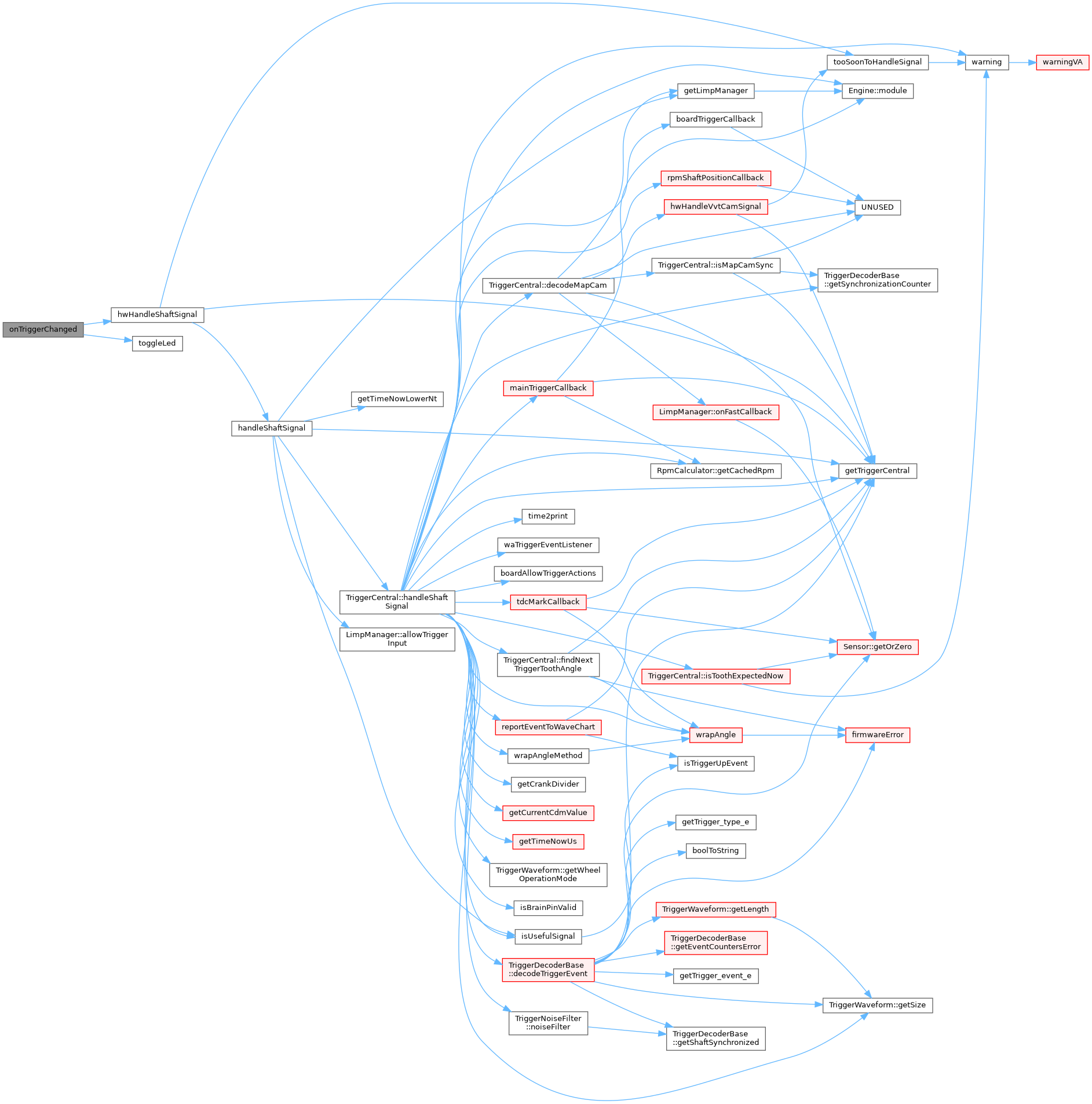

◆ printDumpBuf()
|
static |
Definition at line 98 of file trigger_input_adc.cpp.
Referenced by adcTriggerTurnOnInputPin().

◆ setTriggerAdcMode()
| void setTriggerAdcMode | ( | triggerAdcMode_t | adcMode | ) |
Definition at line 72 of file trigger_input_adc.cpp.
Referenced by adcTriggerTurnOnInputPin(), TriggerAdcDetector::analogCallback(), and TriggerAdcDetector::digitalCallback().

◆ shaft_callback()
|
static |
Definition at line 80 of file trigger_input_adc.cpp.
Referenced by adcTriggerTurnOnInputPin().
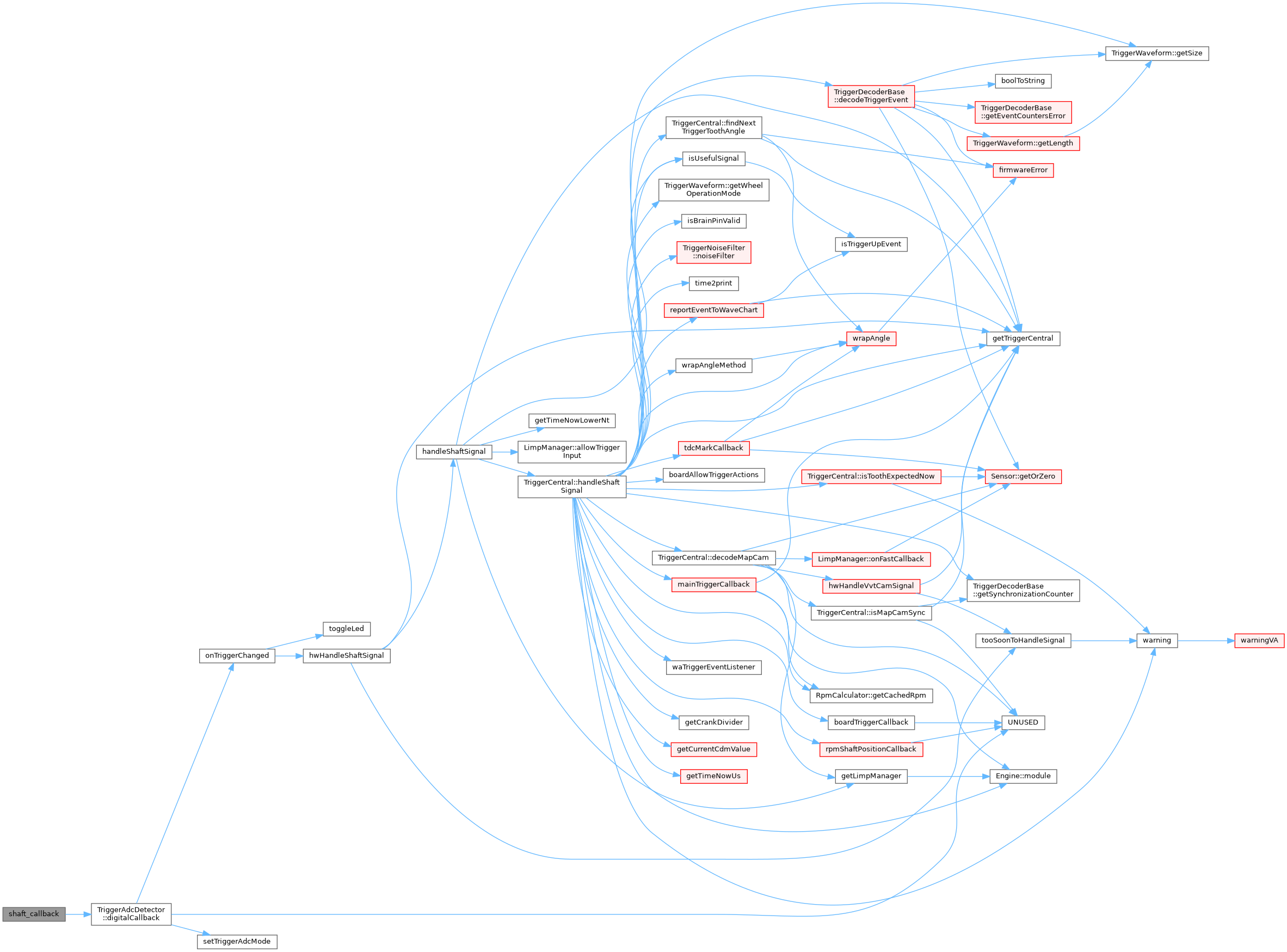

◆ toggleLed()
| void toggleLed | ( | int | led, |
| int | mode | ||
| ) |
!!!!!!!!!!
Definition at line 44 of file trigger_input_adc.cpp.
Referenced by onTriggerChanged().

◆ triggerAdcCallback()
| void triggerAdcCallback | ( | triggerAdcSample_t | value | ) |
Definition at line 92 of file trigger_input_adc.cpp.
Referenced by onFastAdcComplete().
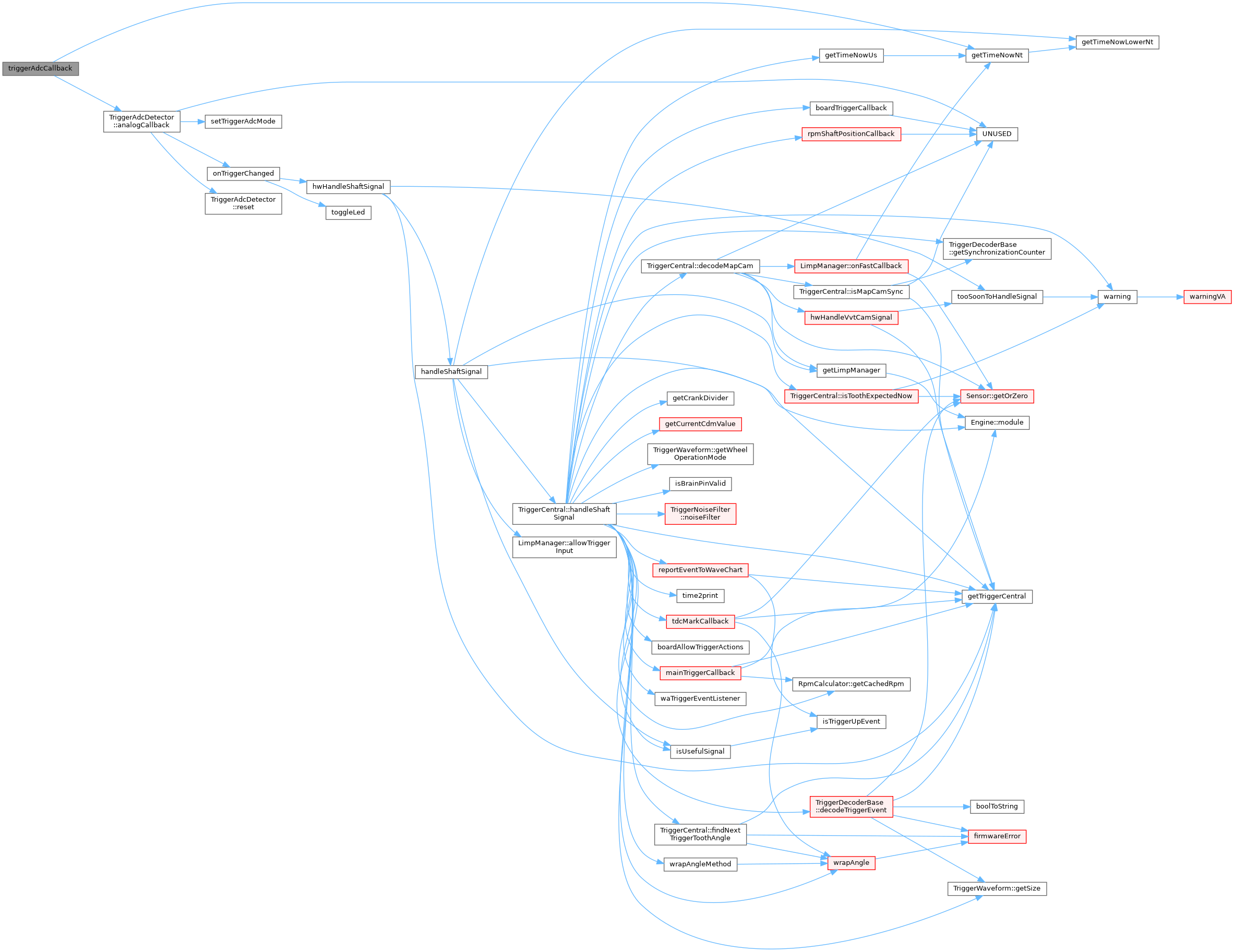

Variable Documentation
◆ dumpBuf
|
static |
Definition at line 40 of file trigger_input_adc.cpp.
Referenced by TriggerAdcDetector::analogCallback(), and printDumpBuf().
◆ dumpBufCnt
|
static |
Definition at line 41 of file trigger_input_adc.cpp.
Referenced by TriggerAdcDetector::analogCallback(), and printDumpBuf().
◆ dumpBufNum
|
static |
Definition at line 39 of file trigger_input_adc.cpp.
Referenced by TriggerAdcDetector::analogCallback(), and printDumpBuf().
◆ trigAdcState
| TriggerAdcDetector trigAdcState |
Definition at line 14 of file trigger_input_adc.cpp.
Referenced by adcTriggerTurnOnInputPin(), getTriggerAdcMode(), getTriggerAdcModeCnt(), getTriggerAdcThreshold(), setTriggerAdcMode(), shaft_callback(), and triggerAdcCallback().
◆ triggerInputPin
|
static |
Definition at line 66 of file trigger_input_adc.cpp.
Referenced by adcTriggerTurnOnInputPin(), and setTriggerAdcMode().
◆ triggerInputPort
|
static |
Definition at line 65 of file trigger_input_adc.cpp.
Referenced by adcTriggerTurnOnInputPin(), and setTriggerAdcMode().